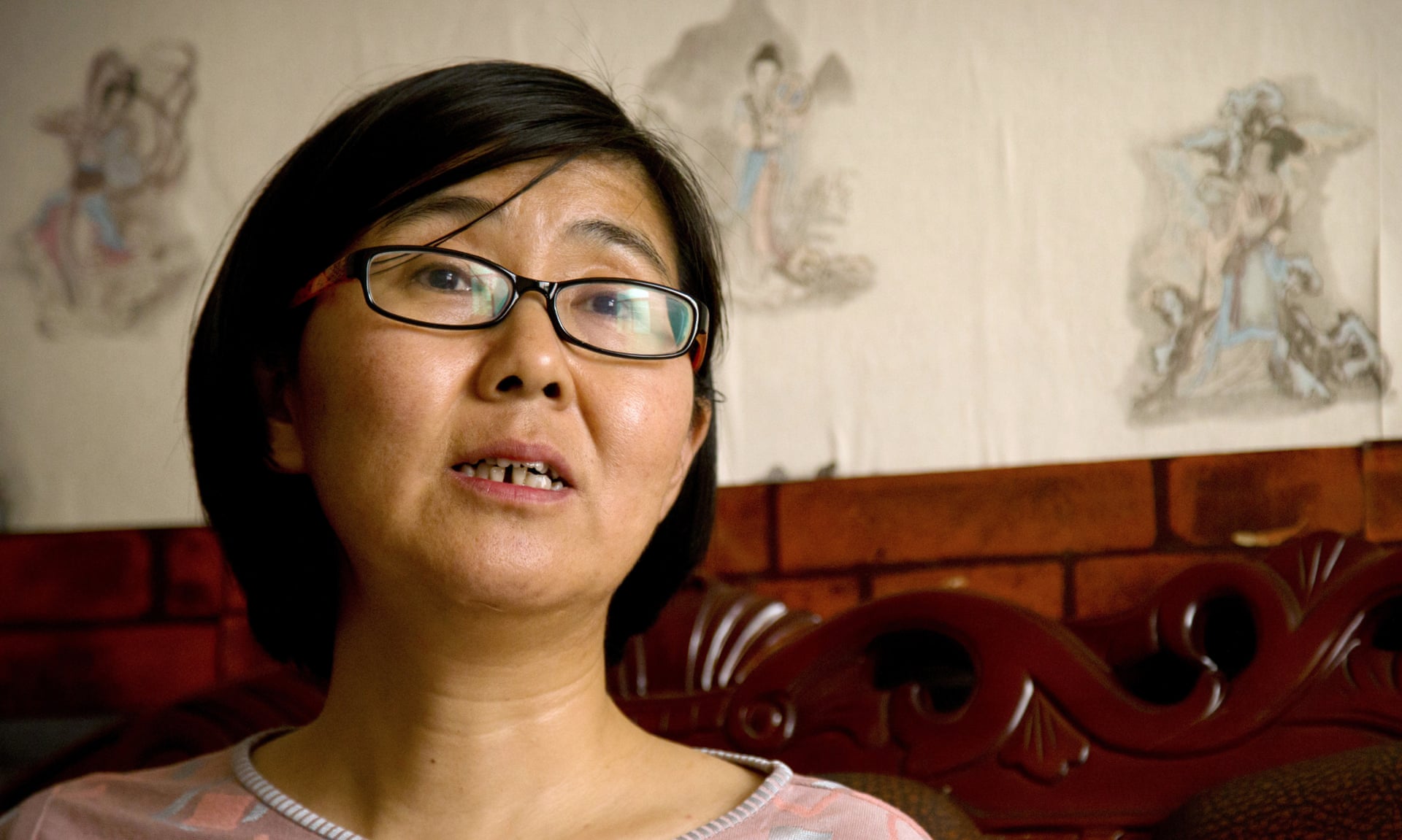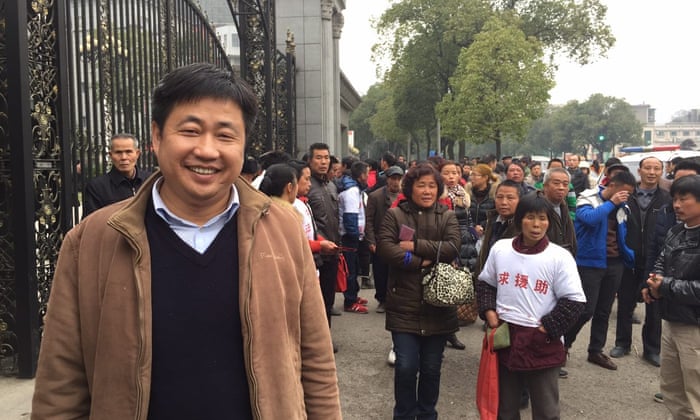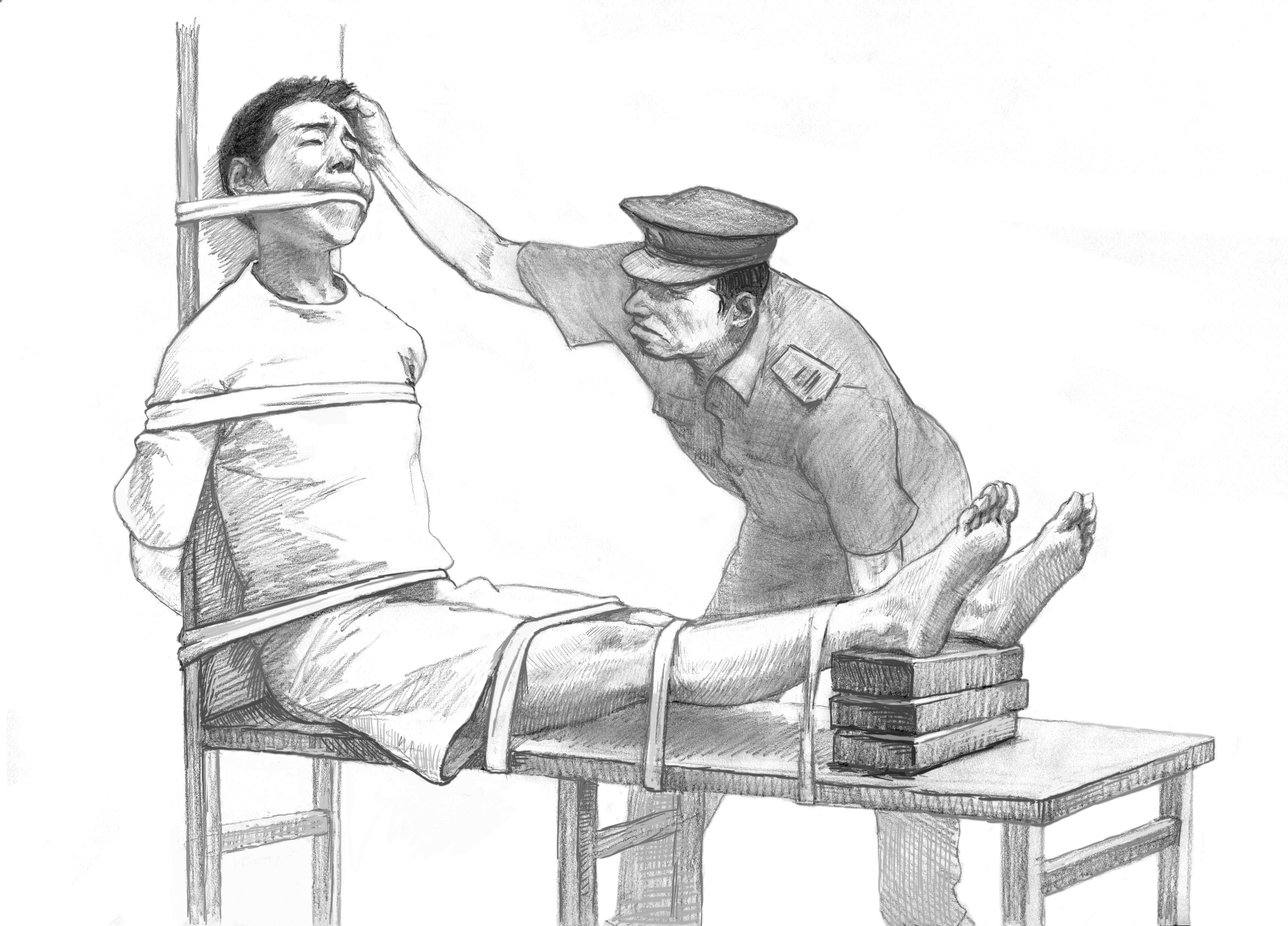"By detaining and disappearing these lawyers and law firm staff, China is in breach of its international obligations as well as Chinese domestic criminal law and constitutional principles.
"It is also violating the UN basic principles on the role of lawyers, the UN declaration on human rights defenders and the UN body of principles for the protection of all persons under any form of detention or imprisonment."

Wang Yu, a prominent Chinese human rights lawyer, pictured in April 2015. She and her husband Bao Longjun were arrested on subversion charges. Her son Bao Zhuoxuan has also disappeared. On 18 January 2016, senior lawyers, judges and jurists from many countries and international organisations
wrote a letter to the Guardian to express our deep concern about the unprecedented crackdown on criminal defence and human rights lawyers that began on the night of 9 July 2015 with the enforced disappearance of lawyers
Wang Yu and
Bao Longjun,
and their 16-year-old son, and has most recently included the emergence of lawyer
Li Chunfu from over 500 days of incommunicado detention with signs of
serious mental illness, as well as physical suffering.From 9 July 2015 to the present, hundreds of lawyers, law firm staff, and family members have been subject to intimidation, interrogation, detention as criminal suspects, wrongful criminal convictions and forced disappearance.
We, the undersigned lawyers, judges and jurists, now write again to express our continued grave concern over subsequent developments in
China, in particular the treatment of the lawyers and legal assistants named in our 18 January 2016 letter, as well as some of their close colleagues, supporters and family members.
We observe the following developments with concern:
•
The authorities have continued to deny several of the detainees, who have been held incommunicado and are facing trial, access to their appointed lawyers (in cases including those of,
Li Heping, Wang Quanzhang, and until recently
Xie Yang and Li Chunfu.
• Detainees are reported to have suffered physical violence at the hands of prison guards: lawyer Xie Yang in January 2017 testified to torture methods including beatings; stress positions; several guards simultaneously blowing cigarette smoke in his face; food, drink and sleep deprivation; denial of medical care; denial of basic personal hygiene; death threats; and excessive questioning at the hands of the authorities. On 23 January 2017, lawyers Li Heping and Wang Quanzhang were reported to have been tortured with electric shocks that made them faint.• Detainees are feared to have been inappropriately medicated (documented in the case of Li Chunfu, who was given pills for “high blood pressure” even though his blood pressure according to independent diagnosis is normal).• The authorities have claimed that lawyers chosen by the detainees or their family members have been “dismissed” and replaced by lawyers chosen by the authorities (for example, in the case of Li Heping).• Some detainees have suffered judicial persecution through
implausible criminal charges and convictions including “subversion of state power”, “inciting subversion of state power” and other crimes against national security and public order (for example, in August 2016,
Zhou Shifeng was sentenced to seven years in prison).
• Some detainees, including Wang Yu and her husband Bao Longjun and legal assistant
Zhao Wei, are claimed to have been “released” from detention centres into private homes, and yet they are closely monitored and wholly isolated from friends and colleagues.
• Written, oral and video statements of self-incrimination and self-renunciation by the detainees, apparently induced by the authorities, have been released through official media channels (for example, lawyer
Zhang Kai was induced to make such a statement, which he later retracted).
•
The authorities have put pressure on detainees’ spouses, siblings, children and parents to persuade the detainees to confess and admit guilt (for example, video-recorded statements by the parents of lawyers Li Chunfu and Li Heping were obtained by means of false representations).
•
Detainees’ families have suffered further persecution: for example, the wives of Li Heping, Wang Quanzhang, Xie Yang and Xie Yanyi have been subjected to police monitoring and harassment; the children of Li Heping and Wang Quanzhang have been denied enrolment at state schools due to police pressure; and the authorities have put pressure on the landlords of Wang Quanzhang’s and Xie Yanyi’s families to evict them from their homes.• Detainees have been defamed through media reports, officially released video-clips and similar materials similar materials portraying them as criminals and enemies of their country.Further, human rights lawyer
Jiang Tianyong is being held on charges of inciting subversion of state power, after
having been disappeared on 21 November 2016.
A colleague and friend of several of the original detainees, lawyer Jiang Tianyong has been forcibly disappeared and on at least two occasions tortured in the past; and his health remains frail, partly as a result of previous torture.
There is grave concern that his rights to personal liberty, the right not to be tortured, and right to a fair trial have been violated yet again.
We continue to be particularly concerned about people who have been detained and/or disappeared and tortured on past occasions of forced disappearance or criminal detention.
These include Li Heping, his brother Li Chunfu, Wang Quanzhang and Jiang Tianyong, as well as Zhang Kai, who retracted his self-renunciation statement in late August 2016.
Xi Jinping has repeatedly stated that “China is a country ruled by law” and that “every individual [Communist] party organisation and party member must abide by the country’s constitution and laws and must not take the party’s leadership as a privilege to violate them”.
Yet the events just described appear to move farther and farther away from those commitments.
China has signed and ratified the UN convention against torture and signed the international covenant on civil and political rights.
By detaining and disappearing these lawyers and law firm staff, China is in breach of its international obligations as well as Chinese domestic criminal law and constitutional principles.
It is also violating the UN basic principles on the role of lawyers, the UN declaration on human rights defenders and the UN body of principles for the protection of all persons under any form of detention or imprisonment.
In order to vindicate its claim to be a responsible stakeholder in the international community and to be a respected global superpower, it is imperative that China honour its international commitments to international conventions and human rights.
Therefore, we respectfully urge China to:
• Ensure the release of the detained or arrested lawyers and others held with them without legal basis.
• Ensure access to counsel for all those detained, arrested or otherwise held as a criminal suspect.
• Confirm the whereabouts of those forcibly disappeared.
• Ensure that the rights of those detained, including their right to adequate medical treatment, are safeguarded.
• Ensure that those detained and their colleagues will be protected from any future control measures such as: tracking and following, violent attacks, soft detention, being “travelled”, being asked to have “chats”, criminal, administrative, judicial detention, forced disappearance, torture and psychiatric incarceration.
We will continue to monitor the fate of the lawyers and staff concerned closely.
Dominique Attias Vice-president of the Paris bar, general secretary of the International Observatory of Lawyers in Danger, France
Robert Badinter Former French minister of justice and former president of the French Constitutional Council, France
Gill H Boehringer Coordinator of the International Association of People’s Lawyers, former dean of the Macquarie University Law School, Australia
Laurence Bory President of the International Association of Lawyers (IAL)
Edgar Boydens Dormer president of the Dutch Brussels Ba, president of Lawyers with Borders (Belgium)
Kirsty Brimelow QC Chair of the Bar Human Rights Committee of England and Wales (BHRC), UK
Jean-Pierre Buyle President of the French and German speaking bar of Belgium
Reed Brody Counsel and spokesperson for Human Rights Watch, United States
David Collins President, American Bar Foundation (2014-2016), United States
Alexandre Couyoumdjian and Virginie Dusen Co-chair, Association of Armenian Lawyers and Jurists, France
Elizabeth Evatt Companion of the Order of Australia; former president, Australian Law Reform Commission, and member of the UN Human Rights Committee; currently, commissioner, International Commission of Jurists, Australia
Pascal Eydoux President of the French National Bar Council; president of the International Observatory for Lawyers in Danger, France
Carlos Fuentenebro President of the Bizkaia Bar Association, Spain
Ruthven Gemmell President of the Council of Bars and Law Societies of Europe
Sonia Gumpert President of the Madrid Bar Association, Spain
Patrick Henry President of the Human Rights Committee of the Council of Bars and Law Societies of Europe (CCBE) and vice-president of Lawyers without Borders, Belgium
Asma Jahangir Jurist, president of the Supreme Court Bar Association of Pakistan, founding member of the Human Rights Commission of Pakistan
Grégoire Mangeat President of the Geneva Bar Association, Switzerland
Michael Mansfield QC Barrister and professor at law, City University, London, UK
Andrea Mascherin President of the Italian National Bar Council, Italy
Juan E Mendez Professor of human rights law, former UN special rapporteur on torture, 2010-2016, Argentina
Marcus Mollnau President of the Berlin bar (Rechtsanwaltskammer Berlin), Germany
Manfred Nowak Professor of international law and human rights at Vienna University, Austria
Victoria Ortega Benito President of the Spanish National Bar Council, Spain
Christophe Pettiti General secretary of the Paris Bar Human Rights Institute, France
Stuart Russell Former administrative judge, Australia
Clive Adrian Stafford Smith Human rights lawyer, UK
David J Scheffer Former US ambassador at large for war crimes issues; Mayer Brown/Robert B Helman professor of law and director, Center for International Human Rights, Northwestern University Pritzker School of Law, USA
Rechtsanwalt und Notar Ulrich Schellenberg President of the German Bar Association (Deutscher Anwaltverein), Germany




